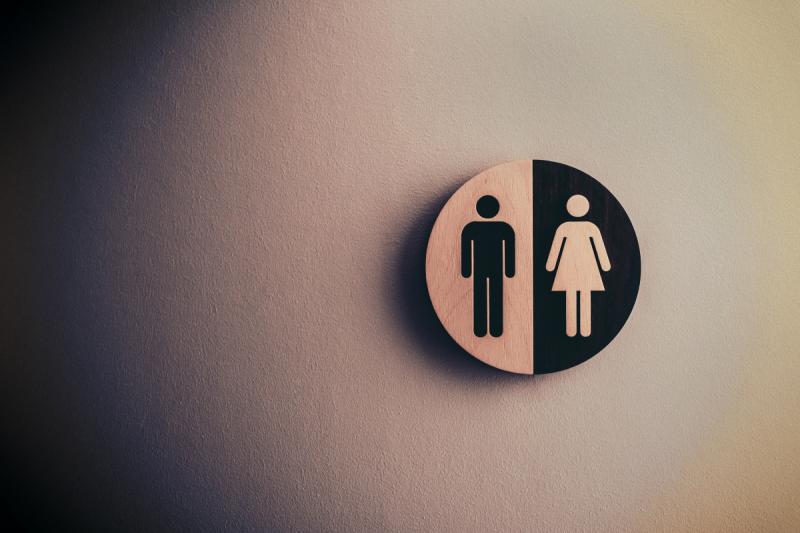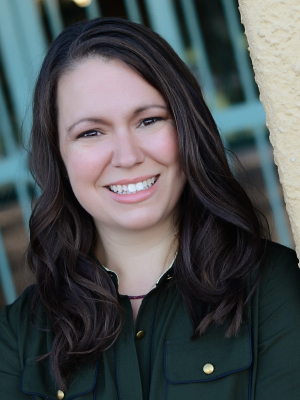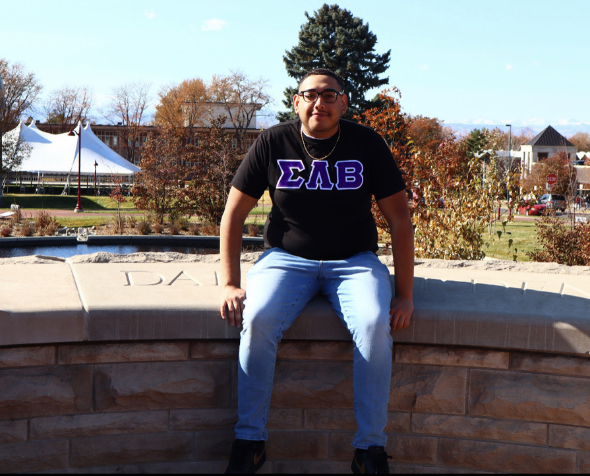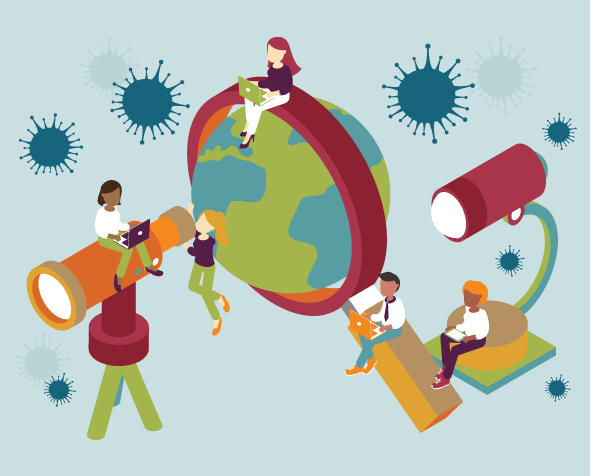Q&A: Building Healthy Masculinities at DU

Amie Levesque is a teaching assistant professor of the Department of Sociology & Criminology. Her research focuses on masculinities and the effects of straight allies in LGBTQ+ spaces, especially as they pertain to youth. In 2021, she became tri-chair of the Healthy Masculinity Working Group at DU. We caught up with her to learn more about her research and this new initiative.
Can you share a little about the research you’ve done surrounding masculinities?
I do research that focuses on youth experiences with gender and sexuality, particularly in schools and other institutions, to identify ways that gender and sexual privilege shape those experiences. I spent over a year in a high school where I observed and interviewed students who participated in a Gay-Straight Alliance. I found that whether or not students identified as allies to marginalized groups had a lot to do with their own gender identity. For example, straight boys are less likely to join affinity groups supporting LGBTQ folx, often out of fear that others will question their masculinity. I also found that while straight girls were more likely to join the GSA as allies, they were also more likely to focus their support toward their peers they identified as their “gay best friend” instead of the lesbian, bisexual or queer-identifying girls in the club.
My data speak to the need to challenge the notion of what it means to be an ally and for a deeper awareness of how allies may be recreating inequalities, even when that’s not their intention. My research also confirms what many gender scholars have found before me, that strict gender norms often prevent straight boys from transgressing those gender boundaries out of fear they won’t be viewed as masculine.
What’s the main focus for DU’s Healthy Masculinity Working Group?
While our group is called the Healthy Masculinity Working Group, we really think of it as the Healthy Masculinities Working Group. People embody a variety of masculinities in their identities, and this group is looking to build awareness of the multiple ways in which individuals may express masculine identities in healthy ways, so that we can continue to build a safer and more inclusive community.
For example, masculinities aren’t only embodied by cisgender (identifying with the sex assigned at birth), straight men and boys — many girls, women, transgender, queer and/ or non-binary individuals identify with masculine characteristics and/or identities, too. Masculine identities are also shaped by race, sexuality, ability and class.
In other words, masculinities are complex. We can learn a lot about what healthy masculinities are when we challenge existing notions of masculinity that emphasize the rewards gained through violent or unhealthy behaviors (both toward oneself and toward others) and also think beyond masculinities embodied, only, by men and boys.
How will you engage the DU community to bring awareness to healthy masculinity on campus?
Our group draws on the expertise of several faculty members and the leadership of staff in Student Affairs, Title IX, CAPE and Health & Counseling to identify how masculine identities may be expressed in ways that could be harmful. More importantly, we’re working to develop campus-wide programming that addresses issues of power and inequality in our community and engages in conversations about what healthy masculinities look like. We emphasize masculinities that are empowering and inclusive, that simultaneously honor individual autonomy to be who we want to be, and that recognize the autonomy of others to embrace the identities they want to feel and express, too.
We hear a lot in our society about “toxic” masculinity, which is a popular way to identify masculinity that is harmful to oneself and to others, and it can also be a term that discourages people from engaging in these important discussions. Instead, our group is taking a critical look at cultures that may be fostering masculinities that reward violence, while also identifying spaces and opportunities to embrace and learn more about what healthy masculinities might look like.
What initiated the Healthy Masculinity Working Group?
Sadly, there are many survivors of sexual and gender-based violence in our world, and like all university campuses, there are many here at DU. Survivors share their stories in diverse ways — through traditional reporting structures, and often, through collective action or protest. The 2019 @WeCanDUBetter social media campaign was a powerful example of the collective action of survivors coming forward with stories of gender harassment and violence in our community. As a result of the campaign, DU created several additional initiatives for addressing gender violence in our community, including the Healthy Masculinity Working Group, which was developed in the summer of 2020.
We already have many scholars working in masculinities research across several disciplines here at DU, so the Healthy Masculinity Working Group was a way to bring all of us together in collaboration for change. This is one group of DU community members working with many other important organizations on campus to create a University in which gender-based violence no longer occurs.
What inspires you to do work and research in this area?
I actually started studying gender and masculinities while I was an undergraduate student here at DU, many years ago. When I learned that gender was socially constructed, and different from sex, it opened my mind to a world of seeing that there were many ways to express gender and masculinity, and that the way our society rewards masculinities that are dominant or violent harms everyone. Masculinities that are anything other than powerful, aggressive or dominant over others, are often dismissed as “not masculine enough.”
I saw this with my brother, who was a really big and shy kid, and he was bullied by other boys because he did not fit their expectations of what it means to be masculine — sexually active, strong, fit and lean. I saw this with my dad when he lost his job. He described himself as a failure because he was no longer the breadwinner. I also saw this with my own partner when he started his first job after law school. He felt torn between staying home with our new baby and going to the office, fearing he might be punished for taking parental leave. I also see this with little boys who are teased for wanting to paint their nails and wear pink clothes. These expectations can have significant impacts on mental health and overall well-being, and they can be harmful to oneself and to others.
April is Sexual Assault Awareness Month. What can we do to show support and spread awareness on campus?
We’re planning several events in the near future, and next year, and we hope many DU community members will come to our events to participate in conversations about what it looks like to embrace healthy masculinities in relationships with others and ourselves. We also invite undergraduate students to reach out to us, if they would like to be involved in this important work.
In terms of what we can do now, I think that we need to recognize that even if we’re not a survivor of gender-based violence, it’s likely we know someone who is, and we each have the responsibility to learn about how we can support individuals who are dealing with the trauma of these experiences. We can start by listening and really hearing what they need. Additionally, I think we can all learn about how we can stop participating in masculinities that harm ourselves and each other. For example, intervening at events where proving masculinity is about harming yourself or someone else can be powerful ways to show others that there are many other ways to be masculine without being harmful.






